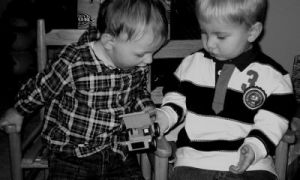Under ACECQA’s National Quality Framework, educators are deemed “qualified” if they hold a Certificate III, Diploma, or approved university degree. But qualification does not equal competence. The current system allows individuals with unrelated undergraduate degrees to complete a one-year postgraduate course and enter classrooms, often with minimal practical experience or emotional readiness. The result? A workforce flooded with technically qualified but emotionally disconnected practitioners some of whom openly admit they “don’t like kids” and entered the profession for visa access or job security.
Multiple Factors Contribute to the Decline in Educator Quality
-
Systemic Qualification Loopholes
- Fast-tracked postgraduate pathways allow entry into teaching with minimal practical experience.
- Some RTOs and universities prioritize enrolment numbers over graduate readiness.
-
Inconsistent Placement Standards
- Practical placements are often treated as compliance tasks rather than developmental opportunities.
- Some services feel pressure to “pass” students to avoid conflict or delays in funding.
-
Workplace Culture and Supervision
- When workplace supervisors “tick and flick” instead of mentoring with integrity, it enables underprepared educators to enter the workforce unchecked.
- Some supervisors are overworked, undertrained, or unsupported in their mentoring role leading to carelessness by circumstance, not intent.
-
Lack of Accountability Mechanisms
- There’s no national system for tracking placement outcomes or flagging repeated concerns.
- Services that raise red flags may feel ignored or penalized, so many stay silent.
Are Assessors Marking Students Off Easy?
In some cases, yes, some assessors are marking students off too easily, and it’s a growing concern across the early childhood education and care sector. This isn’t always due to negligence; often it’s a symptom of systemic pressure, under-resourcing, and a lack of accountability mechanisms.
Why It Happens
- Time pressure: Assessors may be juggling large caseloads and tight deadlines, leading to surface-level marking.
- Funding incentives: Some RTOs and training providers are funded based on completion rates, which can create pressure to pass students.
- Lack of sector experience: Not all assessors have deep, current experience in early childhood settings — making it harder to judge emotional intelligence, relational pedagogy, or child safety awareness.
- Fear of conflict: Services and assessors may avoid failing students to prevent complaints, appeals, or reputational damage.
What “Marking Off Easy” Looks Like
- Signing off on competencies after minimal observation.
- Accepting vague or templated responses without probing for understanding.
- Overlooking red flags in placement (e.g., poor interactions with children, lack of initiative).
- Failing to provide constructive feedback or require resubmission.
Becoming an RTO Assessor?
To become an RTO assessor in early childhood education, individuals must hold the TAE40122 Certificate IV in Training and Assessment, along with a nationally recognised qualification in early childhood education typically a Certificate III or Diploma and recent, relevant sector experience.
However, holding the right paperwork is only part of the equation. Assessors who lack deep, hands-on experience in early learning environments may struggle to recognise the nuanced skills that define a truly capable educator — such as emotional attunement, responsive practice, and relational pedagogy. Without this lived understanding, assessments risk becoming transactional rather than transformational, producing educators who are technically qualified but not genuinely prepared to uphold the safety, wellbeing, and learning of children.
To ensure quality outcomes, assessors must not only know the standards they must have lived them.
What Needs to Change
- Stricter assessment standards aligned with ACECQA’s expectations for safety, responsiveness, and professionalism.
- Mandatory assessor training in emotional intelligence, trauma-informed practice, and relational pedagogy.
- Placement integrity frameworks that empower services to report concerns and fail students when necessary.
- Sector-led moderation: Peer review of assessments to ensure consistency and rigour.
- Clear consequences for repeated poor assessment practices — not just for students, but for RTOs and assessors.
Is Practical Placement Accountable?
Every qualification, whether through TAFE or university, includes mandatory practical placement. But in reality, these placements are often treated as box-ticking exercises. Mentors in services are under pressure, under-resourced, and sometimes incentivized to pass students regardless of actual competence.
This undermines the entire system. If a student is not demonstrating safe, responsive, or developmentally appropriate practice, that must be addressed, not ignored. Services should be empowered (and expected) to provide honest feedback, fail placements when necessary, and scaffold improvement through reflective supervision.
Why Practical Placement Matters
- It’s the only time students are observed in real-world settings before being qualified.
- It’s where they demonstrate not just knowledge, but emotional intelligence, ethical conduct, and relational pedagogy.
- It’s the frontline of child safety and sector quality what happens (or doesn’t) here shapes the entire workforce.
Where Accountability Breaks Down
- Supervisors are under-resourced: Many aren’t given time, training, or support to mentor meaningfully.
- “Tick and flick” culture: Some services feel pressured to pass students to avoid conflict with RTOs or universities.
- No national tracking: There’s no consistent system to flag repeated concerns or failed placements.
- Fear of repercussions: Services that report incompetence may worry about losing partnerships or being blamed.
Should Work Placement Hours Be Increased?
Increasing work placement hours for early childhood education qualifications is widely supported as a way to improve educator quality, emotional readiness, and child safety. Current minimums (100 hours for Certificate III and 280 for Diploma) are often seen as insufficient for developing deep, reflective practice.
Why More Placement Hours Matter
- Hands-on learning is essential in early childhood education. It’s where students develop real-world skills like responsive caregiving, emotional attunement, and ethical decision-making none of which can be fully taught in a classroom.
- Current placement hours are often rushed, with limited time for meaningful feedback, reflection, or growth. This can lead to students being signed off before they’re truly ready.
- Regulators are concerned: A joint sector alert from ASQA and TEQSA flagged risks in workplace learning, noting that some training providers are not ensuring students are “appropriately skilled and assessed to deliver high quality and safe care.”
Current Requirements (Minimums)
| Qualification | Required Placement Hours |
|---|---|
| Certificate III (CHC30121) | 160 hours |
| Diploma (CHC50121) | 280 hours |
These are minimums, not maximums but many RTOs treat them as the finish line.
What Increasing Hours Could Achieve
- More time for mentoring and feedback, reducing the “tick and flick” culture.
- Greater exposure to diverse routines and age groups, including infants, toddlers, and preschoolers.
- Opportunities to build confidence and competence, especially for students new to the sector.
- Better alignment with apprenticeship-style models, where learning is embedded in practice over time.
Visas And Childcare Qualifications
Childcare qualifications in Australia can lead to visa pathways, especially due to high demand in the sector. Roles like early childhood educator are now on the Core Skills Occupation List (CSOL), opening access to skilled migration and permanent residency options.
Here’s a breakdown of how childcare qualifications intersect with visa eligibility:
Childcare Roles on the Skilled Occupation List
Early Childhood Educator and Childcare Worker are currently listed on Australia’s Core Skills Occupation List (CSOL), which means qualified individuals can apply for several skilled migration visas, including:
- Skills in Demand Visa (subclass 482)—employer-sponsored, temporary
- Employer Nomination Scheme (subclass 186)—permanent residency via direct entry
- Training Visa (subclass 407) – for structured workplace-based training
- Skilled Independent Visa (subclass 189)—points-tested, no employer sponsorship required
- Skilled Nominated Visa (subclass 190)—state-sponsored permanent visa
Qualification Requirements
To be eligible for these visas, applicants must:
- Hold a Certificate III or Diploma in Early Childhood Education and Care (from an ACECQA-approved provider)
- Have relevant work experience (typically 2–3 years for permanent visas)
- Be nominated by an approved employer (for employer-sponsored visas)
- Meet minimum salary thresholds (e.g., AUD $73,150–$76,515 for 482/186 visas)
Visa Pathways for International Students and Migrants
- Many international students choose childcare courses to access Temporary Graduate Visas (subclass 485) after study.
- Some are advised to pursue childcare as a “visa-friendly” career — but this can attract candidates with little passion or suitability for the role.
Sector Risks and Ethical Concerns
- Services report students who enter the field solely for migration purposes
- This undermines the profession and places children at risk.
- Workplace supervisors and RTOs must uphold integrity during placements and assessments, refusing to pass students who are not competent.
What Would Help
- Stricter vetting of student motivation and suitability during enrolment and placement.
- Mandatory mentor training and accountability for services hosting students.
- Policy reform to balance migration needs with sector quality, ensuring visas support—not dilute—educator standards.
How Can Services Assess The Quality Of An Educator Before Hiring
Early childhood services can assess educator quality before hiring by combining structured interviews, scenario-based questions, practical trials, and reference checks — all grounded in relational pedagogy and child safety principles.
Here’s a practical, sector-savvy approach to identifying truly capable educators before they enter your team:
Go Beyond the Resume
- Look for depth, not just qualifications. A Certificate III, Diploma, or even a degree doesn’t guarantee competence.
- Ask: What motivated you to work with children? How do you build trust with families?
- Look for authenticity, emotional intelligence, and reflective capacity — not rehearsed answers.
Use Scenario-Based Questions
Pose real-world dilemmas that test judgment, not just knowledge:
- What would you do if a child disclosed something concerning?
- How would you respond to a colleague who speaks harshly to a toddler?
- Describe a time you adapted your approach for a child with additional needs.
You're assessing their values, responsiveness, and safeguarding instincts — not just policy recall.
Observe a Practical Trial or Play Session
- Invite shortlisted candidates to spend time in the room (with supervision).
- Watch how they:
- Enter the space and engage with children
- Respond to conflict or distress
- Interact with team members
Body language, tone, and presence reveal far more than a CV ever could.
Use a Values-Aligned Rubric
Create a simple checklist or rubric based on your service philosophy and the National Quality Standard (NQS). Include:
- Respectful interactions
- Cultural responsiveness
- Initiative and curiosity
- Emotional regulation under pressure
Conduct Deep Reference Checks
- Don’t just ask “Were they reliable?” — ask:
- Would you rehire them?
- How did they handle feedback or conflict?
- What kind of relationships did they build with children and families?
Trust Your Team’s Intuition
- Involve room leaders or mentors in the hiring process.
- If something feels off — even if the paperwork looks perfect — pause.
Your team’s emotional radar is a powerful quality filter.
Services Have A Responsibility Too
Early childhood services play a vital role in shaping well-rounded, high-quality educators by actively investing in their growth. Upskilling should go beyond compliance it must be embedded in a culture of continuous learning, emotional safety, and reflective practice.
Services can foster this by offering regular professional development tailored to real-world challenges, mentoring that builds confidence and competence, and opportunities for educators to collaborate, question, and innovate.
A learning-rich environment where curiosity is valued, feedback is constructive, and wellbeing is prioritised empowers educators to evolve not just in skill, but in heart. When services nurture their teams with intention, they don’t just meet standards they raise them.
Quality educators aren’t born from paperwork they’re shaped through practice, reflection, and integrity.
As a sector, we must move beyond minimum standards and reclaim what truly matters: emotionally intelligent, responsive, and capable professionals who show up for children with heart and skill. Whether you’re a mentor, assessor, leader, or advocate, your voice matters. Let’s raise the bar together not just for qualifications, but for the kind of care every child deserves.
Further Reading
Diploma Qualified Educator Job Description
ECT Qualified Educator Job Description
Cert 3 Qualified Educator Job Description
Interview Questions For A Diploma Educator Job In Early Childhood
Detecting Fast-Tracked Early Childhood Qualifications in Interviews
Unqualified and Unprepared: What Needs to Change
Reference:
Future of the Early Childhood Education Profession







 Whether you are doing a Cert 3 or a Diploma traineeship or thinking about doing a traineeship it’s a good idea to understand what wages
Whether you are doing a Cert 3 or a Diploma traineeship or thinking about doing a traineeship it’s a good idea to understand what wages Work placement is an excellent opportunity for you to prepare and gain insight into the early childhood industry as well as help you to clarify
Work placement is an excellent opportunity for you to prepare and gain insight into the early childhood industry as well as help you to clarify Are you thinking of starting a traineeship in childcare? Well from personal experience, working in this child care industry brings great fulfilment and satisfaction. Watching
Are you thinking of starting a traineeship in childcare? Well from personal experience, working in this child care industry brings great fulfilment and satisfaction. Watching There is no truth to the rumour that the certificate III or 'actively working towards' will be phased out.
There is no truth to the rumour that the certificate III or 'actively working towards' will be phased out.
 For educators looking to update their qualification and have the required knowledge, experience and skills instead of completing assignments and tasks to complete a qualification
For educators looking to update their qualification and have the required knowledge, experience and skills instead of completing assignments and tasks to complete a qualification As a student finding information and doing research is an important part of completing assignments. Once you find the information you need to complete the
As a student finding information and doing research is an important part of completing assignments. Once you find the information you need to complete the Being a student and completing assessments can be a hard task. Especially when you don’t understand what the question is, you have to write an
Being a student and completing assessments can be a hard task. Especially when you don’t understand what the question is, you have to write an Hiring overseas educators can not only bring a service the benefits of a diverse, multicultural workplace but also address staffing shortage issues. However before an
Hiring overseas educators can not only bring a service the benefits of a diverse, multicultural workplace but also address staffing shortage issues. However before an As you take the next big step and decide to continue studying you need to decide whether you will be able to manage working at
As you take the next big step and decide to continue studying you need to decide whether you will be able to manage working at Making the decision to study is a big one. It can be stressful, thinking of how you're going to complete assignments or if you're going
Making the decision to study is a big one. It can be stressful, thinking of how you're going to complete assignments or if you're going


